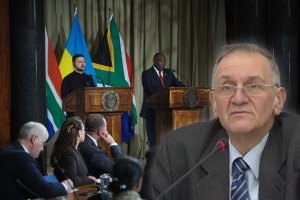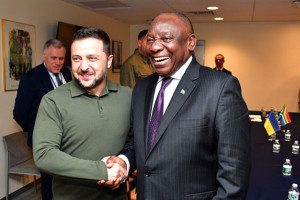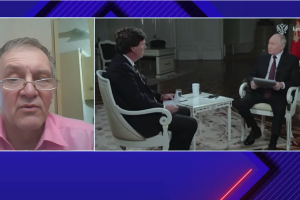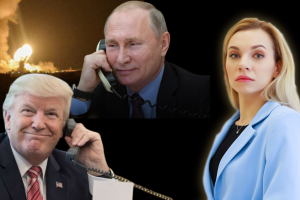Pauselijke diplomatie: waarom Oekraïne kwaad is op Franciscus
Source: Knack
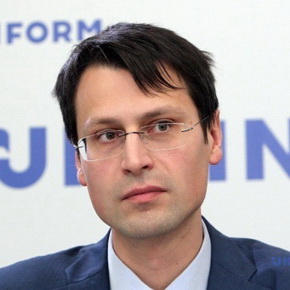 'For Ukrainians, the Pope's statements are downright bizarre,' said Petro Burkovskiy, director of the Ukrainian think tank Ilko Kucheriv Democratic Initiatives Foundation. 'Peter the Great broke the independence of the Orthodox Church and appointed himself head of the church. Peter the Great and Catherine the Great are the two leaders who destroyed the independence of the Ukrainian state in the 18th century. It is as if the Pope were to tell Belgian Catholics that Leopold II should be an example to Belgian youth, and that message would then be shown on Congolese television. Do you think the Congolese would welcome that to applause?
'For Ukrainians, the Pope's statements are downright bizarre,' said Petro Burkovskiy, director of the Ukrainian think tank Ilko Kucheriv Democratic Initiatives Foundation. 'Peter the Great broke the independence of the Orthodox Church and appointed himself head of the church. Peter the Great and Catherine the Great are the two leaders who destroyed the independence of the Ukrainian state in the 18th century. It is as if the Pope were to tell Belgian Catholics that Leopold II should be an example to Belgian youth, and that message would then be shown on Congolese television. Do you think the Congolese would welcome that to applause?
Burkovskiy does not see the Pope's statements as a deliberate provocation. 'No doubt he did not intend to condone Russian imperialism, but that is the message he sent out. It shows that this Pope does not understand anything about Russia and the history of Eastern Europe. It is incomprehensible to a diplomatic network that is usually very well informed.'
As a result, despite the Vatican's humanitarian efforts, Ukrainians view papal diplomacy with distrust. Francis has never explicitly condemned the Russian annexation of Crimea in 2014 and has never criticized Russian involvement in the Donbas war. He portrays the Russian invasion as a fratricidal struggle, which he compares to the Biblical dispute between Cain and Abel. To Ukrainians, that comparison is suspiciously similar to Russian imperialist propaganda that presents Ukrainians as a fraternal people belonging to the Russian empire. The claim that NATO is "barking at Russia's front door" is a copy of Russia's way of justifying its imperial ambitions. The way the Pope tries to separate Russian culture and Russian imperialism also offends many Ukrainians. After all, for them, the two are inseparable. On Ukrainian social media, people speak disparagingly of Vatnikan, a pun on Russian vatnik, a swear word for propagandists who blindly support Russia.
There is also discontent among Ukrainian Catholics. Svyatoslav Shevchuk, who leads the Ukrainian Greek Catholic Church as grand archbishop, is highly critical of the papal mediation efforts. When the Vatican wanted a Russian and a Ukrainian woman to carry a cross to the altar together during the Good Friday celebration last year, Shevchuk called the idea "inopportune and ambiguous. And when Francis sang the praises of the Russian tsars in late August, Shevchuk called it "the worst example of imperialism and extreme Russian nationalism. The examples given by the Holy Father contradict his teachings on peace, since he has always condemned any form of imperialism in the modern world.
But the main stumbling block is Rome's remarkable relationship with the Russian Orthodox Church. For the past decade, the Catholic Church has been pulling out all the stops to strengthen ties. Those efforts led to a historic meeting betweenFrancis and Patriarch Kirill at the airport of the Cuban capital Havana in 2016. Never before had the head of the Catholic Church and the head of the Russian Orthodox Church met. Even during the war in Ukraine, the Holy See continues to view the Russian Orthodox Church as a partner for peace. Patriarch Kirill's role, however, is particularly objectionable. Kirill, who in 2012 called Vladimir Putin "a gift from God," presents the invasion as a metaphysical struggle of pious Moscow against the depraved West. After the Russian mobilization of September 2022, Kirill said that Russian soldiers dying in Ukraine "sacrifice themselves for others" and that as a result "all their sins are washed away. Although Francis has repeatedly reprimanded Kirill for his evil role, the Russian Orthodox Church remains an important interlocutor. 'The bond with the Russian Orthodox Church is far too precious to give up,' Burkovskiy said. 'Through the Orthodox Church, they have a direct line to the Kremlin. They will never break those ties.'
Francis is an Argentine who does not want to be "the chaplain of the West."
(...)
Burkovskiy named one scenario in which the Catholic Church may well have a very important role. 'If Donald Trump wins the US elections next year, the Vatican could become the interlocutor. The Holy See has invested tremendously in its relationship with Hungary, where Viktor Orbán is the European confidant for Trump. They are one of the few to have a line of communication with the Kremlin through the Russian Orthodox Church. If Trump wins, he will try to push through a peace and the Vatican will become a powerful player in the negotiations. For Ukraine, that would be downright disastrous.
Read the full article in Dutch





